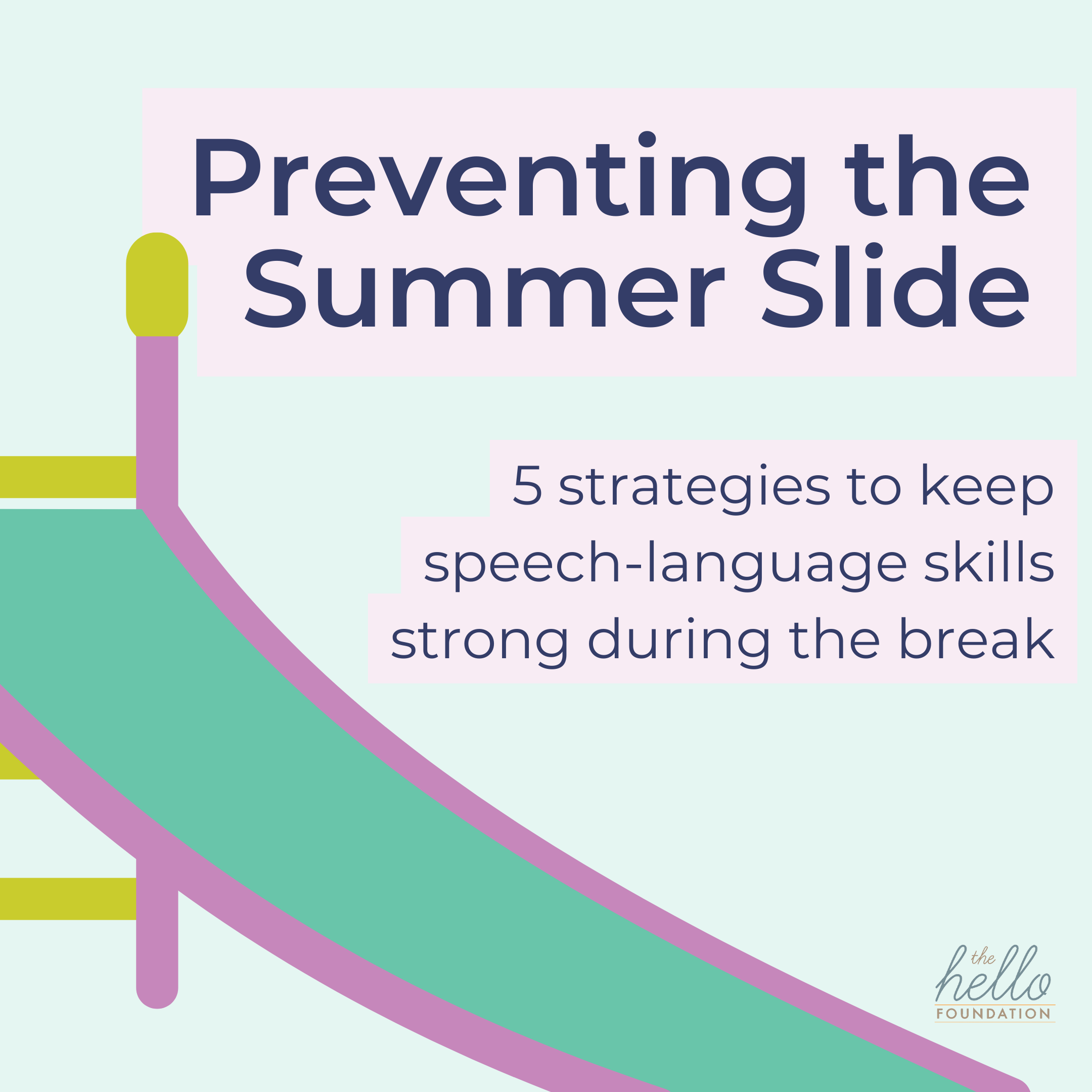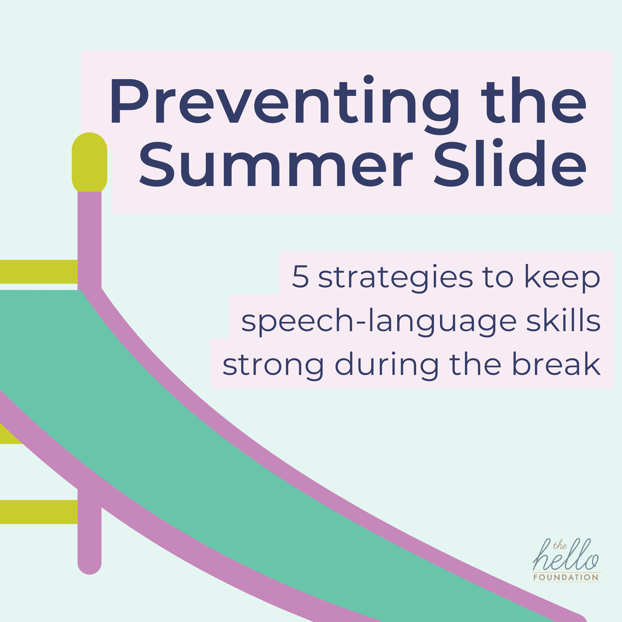
Can you hear that? It’s the giant ticking clock, counting down the days, hours, minutes, seconds until school is out for summer. Along with pool days and BBQs, the summer also, unfortunately, brings academic regression for many students. "The summer slide," as it's known, is all too common. Students typically score lower on standardized tests at the end of summer vacation than they do on the same tests at the beginning of the summer (White, 1906; Heyns, 1978; Entwisle & Alexander 1992; Cooper, 1996; Downey et al, 2004), and lose about 20 percent of their reading growth and 27 percent of their math growth during summer break. Speech-language skills are not immune to these setbacks, of course. In this post, we'll provide 5 easy peasy activities to make the most of the summer months and prevent the summer slide from derailing speech-language progress.

READ!
Reading during the summer may seem like a given, but it truly is the easiest way to keep all sorts of skills sharp. There are loads of summer reading programs, and it's a fantastic time to let kids engage in reading exactly what they want. For something more formal, ReadWorks has over 50 passages in their "SummerReads" section, all of which can be filtered by reading level, topic, and content type. The built-in comprehension questions at the end of each passage make these excellent for increasing comprehension skills, but they’re also great for vocabulary work (highlight unknown or keywords, make guesses, confirm definition), sequencing work (retell the story in order, cut apart the story and put it back together), and even articulation (highlight all the words with the target sound).
Do a Passion Project
Summer is perfect for Project Based Learning (PBL). At its root, PBL really just means doing projects and weaving learning targets into them. During the summer, students can be encouraged to follow their passion wherever it leads, and we can weave speech-language support into their explorations. For example, let's pretend a child is very into king cobras. If they had a language goal for sequencing, PBL would tell us to do some research on the life cycle of the cobra (online, at the library, zoo, etc), and then print out or draw some pictures of the life cycle so that we could practice putting them in order. Then they could call Grandma and tell her about the lifecycle, write about it, create an animation of it, build it out of lego . . . really, whatever they felt passionate about doing. The point here is that kids can learn about what they want to learn while you secretly help them learn what you want them to learn.
Make a Picture Book or Video
We all take pictures all of the time, so why not incorporate a child’s speech-language goals into the picture-taking? If it is sounds they're working on, have them take pictures of things that start with their sounds. If it’s language, let them take pictures for an entire day, on a summer trip, or on a theme. No matter what the pictures are of, the next step is to use them in a project. Make them into a book, either online or printed, or a video slide show. Have them write or narrate text that's in alignment with their speech-language goals (e.g. "Everything I Saw on Vacation that Starts with S").
Word of the Week
Here's an easy vocabulary booster you can do as a school SLP to send home with students over the summer. Make a list of 12 words. You can use one of these lists to help you, or choose them based on some other criteria. Now, transfer each of those words onto their own index card, and write the definition on the back. Put them all in a paperclip or baggie, along with a little ball of sticky tack. Send them home with students, with the instruction for caregivers to take out one card per week and stick it somewhere prominent (front of the fridge, inside the front door, on the car dashboard, on the dining room table, etc.).
Question of the Day
This is another very easy, low-stress activity that has benefits for all sorts of speech and language skills. All that's needed is a list of questions (like this one, this one, or this one) and 5-10 minutes a day to chat about it. There can be an emphasis on some aspect of expressive language (descriptors, sequencing, explaining, commenting), receptive language (answering questions, responding to comments), social language (turn-taking, reciprocal questions), or articulation (target sounds at the word, phrase, sentence, or conversational level), or it can just be a fun way to get a conversation going.
 No matter what we do to help parents and students retain their skills during the summer break, the key lies in maintaining a balance between relaxation and continued learning. We can embrace the summer months as an opportunity for growth, exploration, and engagement with new and emerging skills. Happy summering to one and all!
No matter what we do to help parents and students retain their skills during the summer break, the key lies in maintaining a balance between relaxation and continued learning. We can embrace the summer months as an opportunity for growth, exploration, and engagement with new and emerging skills. Happy summering to one and all!
This post was originally published May 2014 and most recently updated May 22, 2023.
